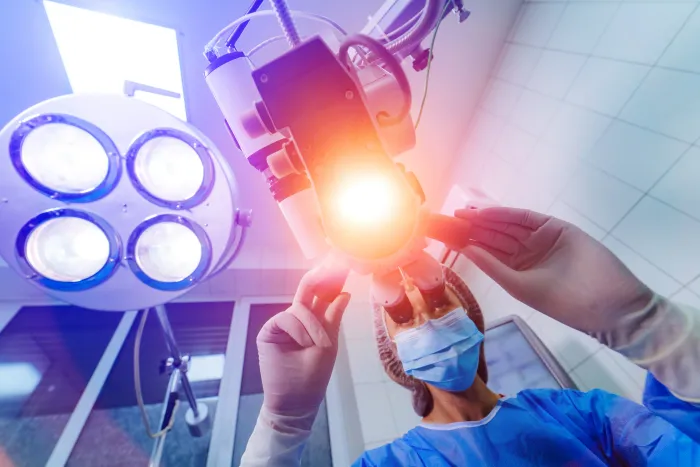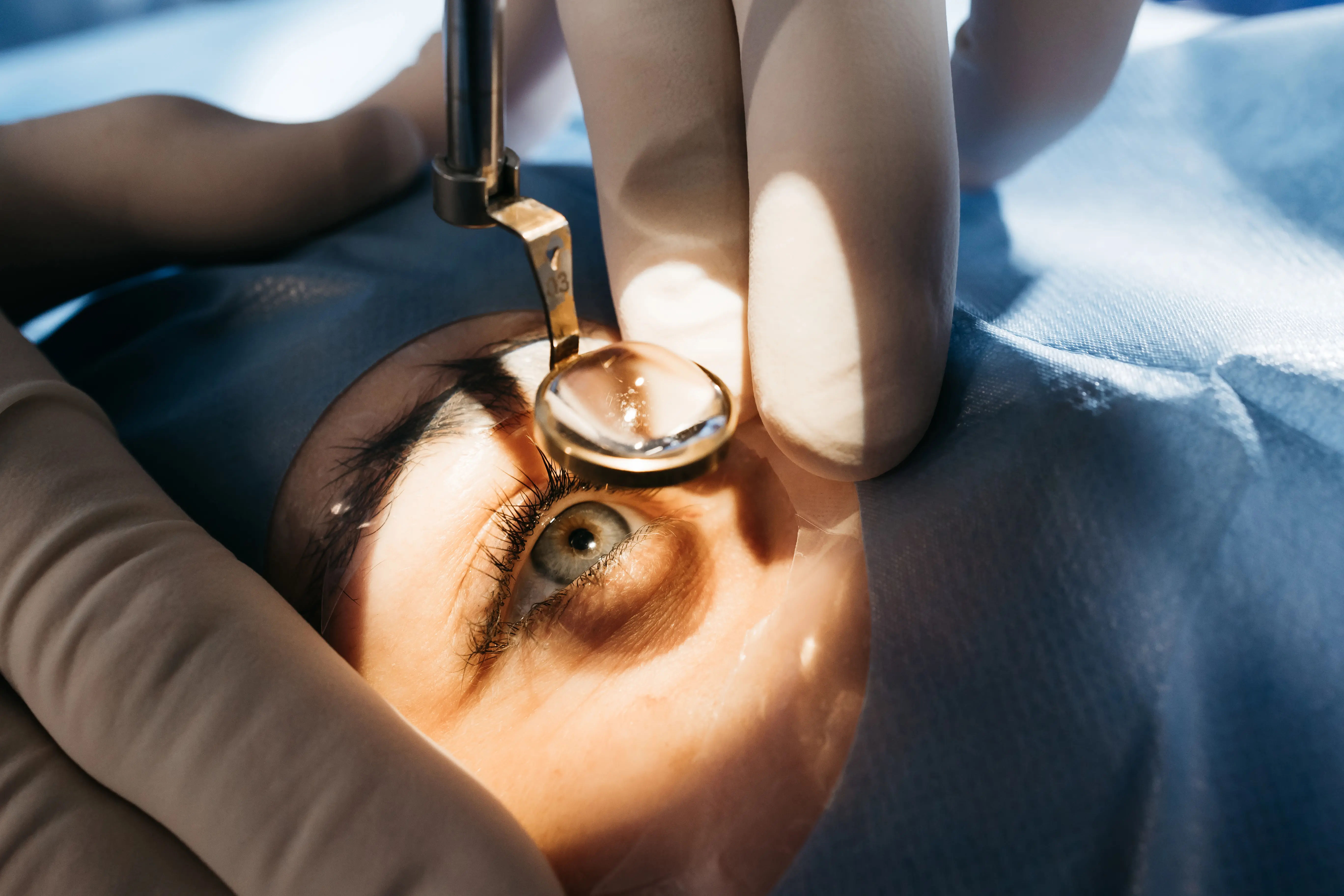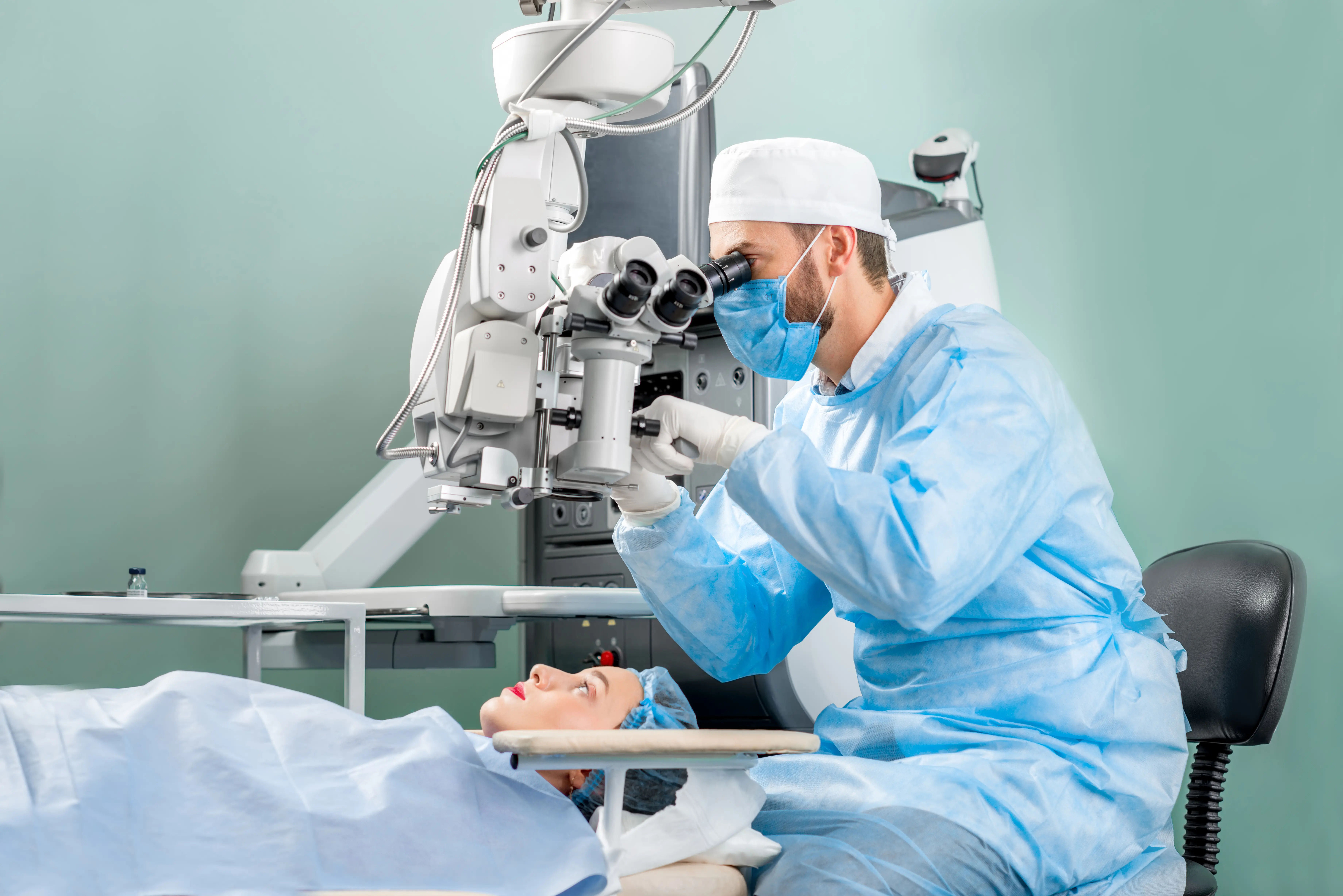When To See Optometrist After Cataract Surgery?
Learn when to see your optometrist after cataract surgery, what to expect at each follow-up, and how regular check-ups help ensure a smooth recovery.

Written by Dr. Dhankecha Mayank Dineshbhai
Reviewed by Dr. Siri Nallapu MBBS
Last updated on 13th Jan, 2026

Introduction
Cataract surgery is a common and generally safe procedure that helps restore clear vision by replacing the cloudy lens in your eye with an artificial one. However, proper post-operative care is essential for a smooth recovery and optimal results. One of the most important aspects of recovery is knowing when to visit your optometrist for follow-up checks.
Why Are Follow-Up Visits Important?
After cataract surgery, your eye needs time to heal, and your vision may take a few weeks to stabilise. Regular check-ups with your optometrist ensure that:
Your eye is healing properly.
There are no complications such as infection or swelling.
Your vision is improving as expected.
Any necessary adjustments like updating your glasses prescription can be made.
Consult Top Specialists for Personalised Eye Health Advice
When Should You See Your Optometrist?
Timely follow-ups with your eye care provider are critical for tracking progress and catching any issues early. Here’s a general timeline of when to see your optometrist after cataract surgery:
1. First Follow-Up (Within 24-48 Hours After Surgery)
Your surgeon will typically schedule the first follow-up visit within a day or two after surgery. This check-up ensures:
The eye is healing well.
There’s no sign of infection or increased pressure.
The artificial lens is properly positioned.
2. One Week After Surgery
Another follow-up is usually scheduled about a week later to:
Monitor healing progress.
Check for any delayed complications like swelling or inflammation.
Assess if your vision is improving as expected.
3. One Month After Surgery
By this time, your eye should be mostly healed. The optometrist will:
Evaluate your vision clarity.
Determine if you need new glasses as your prescription may have changed after surgery.
Confirm that no long-term complications like posterior capsule opacification are developing.
4. Additional Visits (If Needed)
Some patients may require more frequent visits if they:
Experience unusual symptoms like severe pain, sudden vision loss, or flashes of light.
Have other eye conditions like glaucoma or diabetes.
Need further adjustments to their vision correction.
Warning Signs That Require Immediate Attention
While cataract surgery is low-risk, complications can occur. Contact your optometrist or surgeon immediately if you notice:
Severe or increasing eye pain
Sudden vision loss or persistent blurriness
Increased redness, swelling, or discharge from the eye
Flashes of light or the appearance of new floaters
Persistent headache, nausea, or vomiting, which are possible signs of increased intraocular pressure
Tips for a Smooth Recovery
To ensure the best possible outcome after cataract surgery:
Use prescribed eye drops as directed to prevent infection and reduce inflammation.
Avoid rubbing or pressing on your eye to prevent injury.
Wear protective eyewear, especially while sleeping, if recommended.
Avoid strenuous activities like heavy lifting or swimming for a few weeks.
Attend all follow-up appointments even if you feel fine.
When Can You Get New Glasses?
Since your vision may continue to improve for several weeks, it’s best to wait at least 4-6 weeks before getting a new glasses prescription. Your optometrist will confirm when your vision has stabilised.
Final Thoughts
Cataract surgery is a highly successful procedure, but proper aftercare is key to a full recovery. Regular follow-ups with your optometrist help ensure your eye heals well and your vision remains clear. If you experience any unusual symptoms, don’t hesitate to seek medical advice.
If you’ve recently had cataract surgery or are preparing for one, Apollo 24|7 offers expert consultations and follow-up care. Book an appointment today to ensure your eyes stay healthy!
Consult Top Eye Specialists
Consult Top Specialists for Personalised Eye Health Advice

Dr. Atheeshwar Das
Ophthalmologist
15 Years • MBBS,DO,DNB(Gold Medal),FRCS(Glasgow),FICO(UK),
Chennai
Apollo Speciality Hospitals OMR, Chennai
Dr. Ashu Agarwal
Ophthalmologist
24 Years • MBBS, MS
Delhi
Apollo Hospitals Indraprastha, Delhi

Dr. Zennat Tajmin Shah
Ophthalmologist
24 Years • MBBS,DO,DNB (ophthalmology), Vitreo Retina Surgeon
Kolkata
Titanium Eye Care, Kolkata

Dr. Smriti Nagpal
Ophthalmologist
13 Years • MBBS , MS (Ophthalmology)
New Delhi
Sunshine mediclinic, New Delhi

Dr. Rajeev Gupta
Ophthalmologist
24 Years • MBBS, MS (Ophthalmology)
Ghaziabad
Om Eye & Gynae Centre, Ghaziabad
Consult Top Eye Specialists

Dr. Atheeshwar Das
Ophthalmologist
15 Years • MBBS,DO,DNB(Gold Medal),FRCS(Glasgow),FICO(UK),
Chennai
Apollo Speciality Hospitals OMR, Chennai
Dr. Ashu Agarwal
Ophthalmologist
24 Years • MBBS, MS
Delhi
Apollo Hospitals Indraprastha, Delhi

Dr. Zennat Tajmin Shah
Ophthalmologist
24 Years • MBBS,DO,DNB (ophthalmology), Vitreo Retina Surgeon
Kolkata
Titanium Eye Care, Kolkata

Dr. Smriti Nagpal
Ophthalmologist
13 Years • MBBS , MS (Ophthalmology)
New Delhi
Sunshine mediclinic, New Delhi

Dr. Rajeev Gupta
Ophthalmologist
24 Years • MBBS, MS (Ophthalmology)
Ghaziabad
Om Eye & Gynae Centre, Ghaziabad



.webp)
